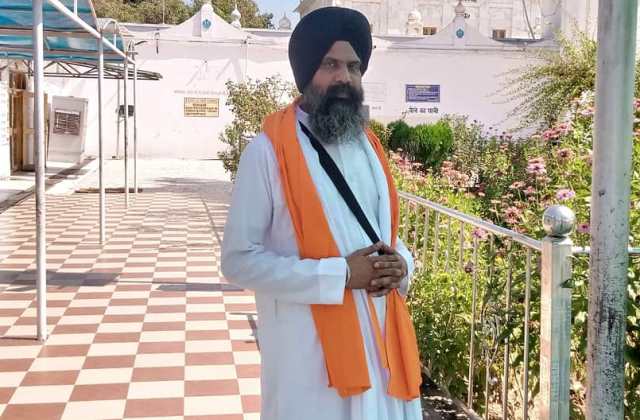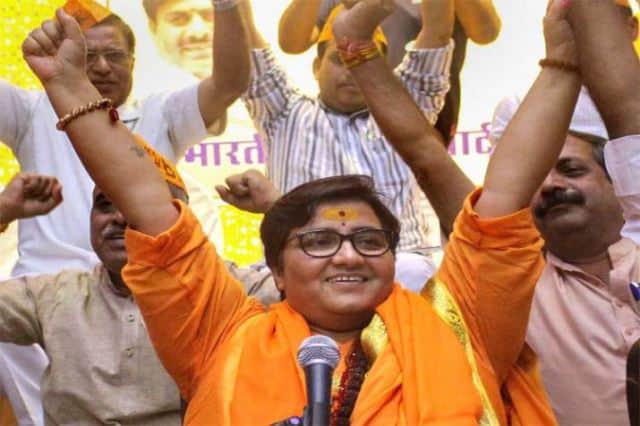BJP has launched an aggressive election campaign on Hindu ‘victimhood’ that requires to be repaired (sic) with attempts to enforce its supremacy over others
Cradle of at least three and home of
many more, India is what it is because of the multiplicity of faiths. Religion
and religiosity are integral to its culture that has had a continuity few
others have.
Call it mutual ‘tolerance’ or
‘acceptance’, Indians professing different faiths live together despite past foreign
military invasions followed by conversions, whether they were forced by the
sword, coerced through temptations or voluntary. There is assimilation even as
people are sought to be divided on religious lines.
What is ‘secular’ in modern-day
parlance has evolved with Indian connotations and convenience, just as what is
‘communal’ has to explain what is not ‘secular’. And ‘secular’ itself has
undergone transformation from being anti-faith and irreligious to treating all
faiths with equal respect.
For two millennia-plus, India has
remained pluralist and yet, in terms of numbers, overwhelmingly (79.8 percent)
Hindu.
And yet, the current election is
witnessing an aggressive discourse on Hindu ‘victimhood’ that requires to be
repaired with attempts to enforce its supremacy over others. Hindutva, the ploy
used to give political turn to the majority faith, gives new twists to the very
understanding of the terms ‘tolerance’ and ‘acceptance’. Secular is spelt ‘sick-ular’.
Three top members of Prime Minister Narendra Modi’s Bharatiya
Janata Party (BJP) including an estranged member of the Gandhi ‘dynasty’ courted
controversy last week for appearing to threaten people to vote for them.
A video showed women and child welfare minister Maneka Gandhi
warning a Muslims’ gathering to vote for her or be shunned if she returns to
power. “I am winning with the help of the people. But if my victory comes
without the support of Muslims, then I will not feel good… “It will leave a
bitter taste. And then when a Muslim comes for any work, then I will think let
it be.”
The other new incident involved Sakshi Maharaj, a Hindu monk,
who told a gathering in Kanpur that he would “curse” those who do not vote for
him. “When a saint comes to beg and isn’t given what he asks for, he takes away
all the happiness of the family and in turn gives curse to the family,” Maharaj
said, adding he was quoting from sacred Hindu scriptures. He is facing 34
criminal charges, including alleged murder, robbery and cheating.
These
offenders are from the ruling alliance. But in a growing list, politicians from
other parties and alliances, like Navjot Singh
Sidhu, Mayawati and Azam Khan, have also used religious ploys, sexist remarks, hate
and intimidation to win support of the electorate even though soliciting votes
on religious lines or threatening voters is prohibited.
The Election Commission, while struggling to maintain its
authority and a semblance of fairness, has admitted before the country’s
highest court that it is ‘toothless’ and ‘helpless’ before the offenders.
For the first time, the statutory body conducting the world’s
largest democratic exercise has slapped token punishments of exclusion from
public speaking, using its limited powers, to some of these offenders for violating
the EC-set norms by appealing to religion or employing religion-related issues.
But the punishment has been ridiculed by some who play to the public gallery
and some others have repeated their offences.
Besides
Sakshi Maharaj, ‘curse’ has become the new cussword. It is astounding that what
one read in fairy tales and mythology is used today to damn opponents.
The
most controversial curse has come from Pragya Singh Thakur, a lady monk
connected with a Hindu extremist body, nominated by the BJP to contest. Unique
and complicated, her case needs elaboration. She is on trial for offences ranging
from conspiracy to murder and transporting explosives. For want of evidence, a
special court recently exonerated her for the 2007 blast on Samjhauta Express,
the train that links India and Pakistan. Seventy Pakistanis returning home and
Indians visiting their relations in Pakistan died.
The
court passed severe strictures against the investigators who first probed a
Muslim group and then switched to “Hindu terror”, allegedly on political
orders. In effect, none has been convicted and punished, even as India demands
of Pakistan to try and punish those involved in the 2008 Mumbai terror attacks.
Thakur
said she had ‘cursed’ the Anti-Terrorism Squad (ATS) chief, Hemant Karkare who she
alleges tortured her. The police officer died fighting the Pakistani militants
in Mumbai. Honoured posthumously, Karkare had also led
the investigations against Thakur in other cases including one pertaining to
blasts at a mosque. Thakur
now declares that he died “within five weeks” of her ‘curse’. She later
regretted her remark, but wants everyone who implicated her in terror attacks
to apologise.
Modi
has defended her nomination, declaring that there is “nothing called Hindu
terrorism.” Legalities apart, her nomination, while she is out on bail on
health grounds, allows her to convert herself from a terror
suspect and a victim of her investigators and the judiciary who were ostensibly
doing their job, to a heroine upholding her faith.
Admittedly,
Thakur is not convicted. She is among the many contesting this election, like
others with criminal cases. But in nominating her, Modi and BJP that routinely hand out certificates of
nationalism and tag anyone who disagrees with their dominant narrative as a
traitor, are rooting for an accused in a terrorism case.
Individuals
apart, how faith determines the fate of friends and adversaries is clear from BJP’s
official Twitter account. It quotes party chief Amit Shah’s speech that explicitly
declared that if re-elected, it would implement the Citizenship bill for the
entire country and would act against all infiltrators who were not Hindu, Sikh
or Buddhist.
The party’s stand on different communities is no secret. The
important thing is the fear that this position elicits among potential voters.
Those obviously excluded are Muslims — invaders who stayed
on to rule — and Christians, although those who came as traders and turned
colonizers hardly exist in present-day India. The targets could be members of the
24 million community that accounts for 2.3 percent of the totally population. But they are ‘outsiders’.
The most telling exclusion – one hopes it’s inadvertent — is
that of Parsis, the Zoroastrian migrants from Iran who made India their home 14
centuries ago — in Gujarat, the home-state of Modi and Shah.
The
opposition has no answer to this campaign. By not countering the BJP on
lynching and numerous other issues that pertain to the minorities and depressed
sections of the society, the opposition parties by and large, but the Congress especially,
have conceded to the BJP’s ideological narrative.
Sadly, Shah’s viewing the electorate as Ali-versus-Bajrangbali
is finding tacit acceptance from rising urban middle classes. Unlikely to end
with these elections, it is now a reality of our times, unlikely to go away.
One
is sticking the neck out mid-way through the voting process, with its outcome barely
three weeks away. Forget arguing over Modi’s development plank and his many
achievements and failures, he could get a fresh mandate by dividing people on
religious lines, instilling fear in them. But if he fails, it will be because a
resilient society that has lived in plurality for long has its own silent, even
if opaque, way of dealing with such attempts.
The writer can be
reached at mahendraved07@gmail.com
]]>


